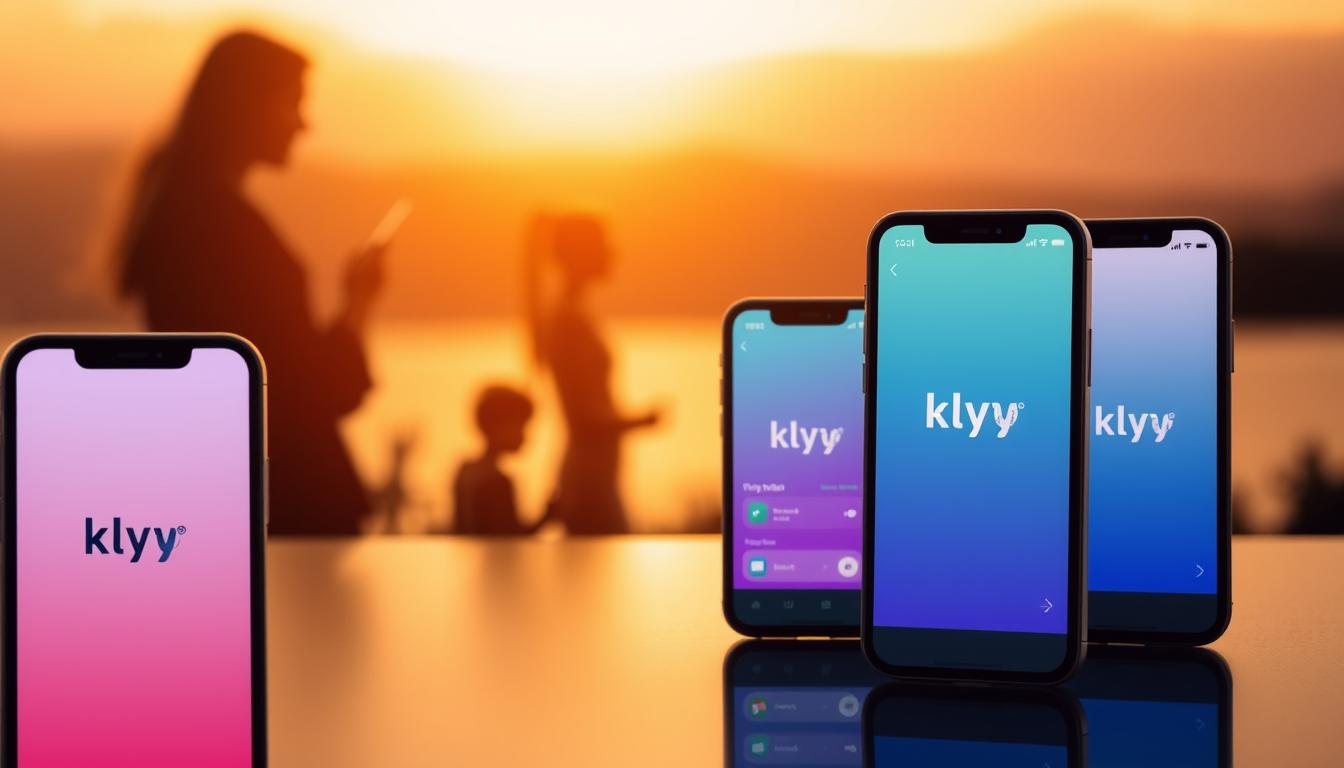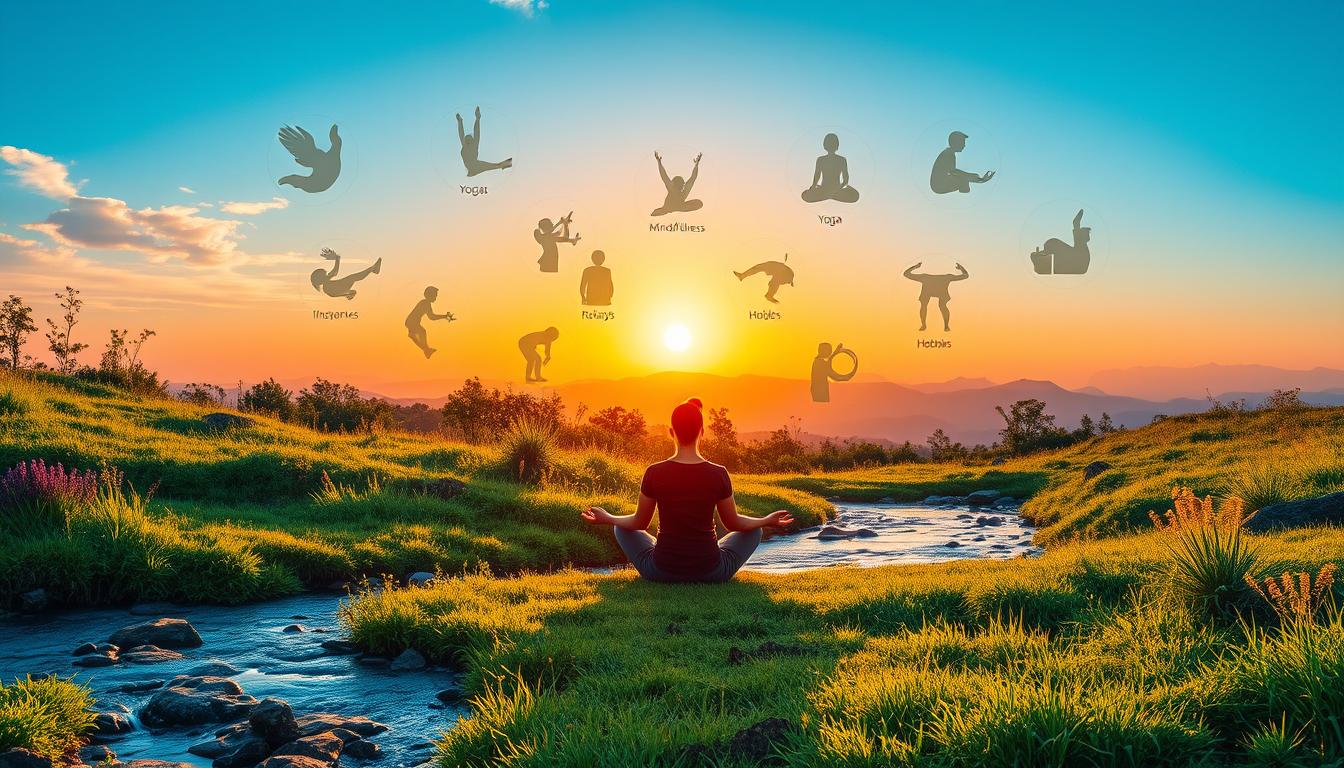I am a participant in the Amazon Services LLC Associates Program, an affiliate advertising program designed to provide a means for sites to earn advertising fees by advertising and linking to Amazon.com and affiliated sites. This post contains affiliate links. Privacy Policy
Discover the Best Apps for Boosting Your Mental Health
Are you finding it hard to handle stress and anxiety every day? You’re not alone. Millions of people around the world are using mental health apps for help.

Digital technology has made mental wellness easier to reach. The right app can give you tools to manage your mental health well.
Our article looks at the best mental health apps to help you find balance in life.
Best Brain Supplement
Key Takeaways
- Discover top-rated mental health apps for stress and anxiety management.
- Learn how these apps can support your mental wellness journey.
- Find out what features to look for in a mental health app.
- Understand the benefits of using mental health apps for your well-being.
- Get insights into the most effective apps for different mental health needs.
The Growing Importance of Digital Mental Health Support
Digital mental health support apps have changed how we care for our minds. Mental health issues are becoming more common. So, we need easy and effective ways to get help. Digital tools offer just that: they’re affordable, convenient, and tailored to each person’s needs.
How Technology Is Transforming Mental Healthcare
Technology is changing mental healthcare in big ways. Mental health support apps give users tools like guided meditation and mood tracking. They help people take charge of their mental health. The benefits are clear:
- Accessibility: You can get help anytime, anywhere.
- Personalization: Apps are designed just for you.
- Anonymity: You can seek help without fear of judgment.
The Science Behind Mental Health Apps
Mental health apps are based on solid science. They use cognitive behavioral therapy (CBT) and mindfulness. These methods have proven to help with mental health. Here’s how the science works:
- They understand how our behavior and mental health are linked.
- They use therapy to help us change for the better.
- They keep getting better thanks to feedback and new research.
By using tech and science, mental health apps are making a big difference in our well-being.
What Are the Best Apps for Mental Health? Selection Criteria
As more people seek mental health support, picking the right apps is key. There are many options, so it’s important to know what makes an app good and trustworthy.
Essential Features of Effective Mental Health Apps
Top mental health apps have personalized features. They might include:
- Personalized mental health plans made just for you.
- Mood tracking to keep an eye on your feelings.
- Guided meditation and mindfulness exercises to calm your mind.
- Cognitive Behavioral Therapy (CBT) tools to change negative thoughts.
These features help users manage their mental health better.
| Feature | Description | Benefit |
|---|---|---|
| Personalized Plans | Customized mental health strategies | Enhanced user engagement |
| Mood Tracking | Monitoring emotional states | Early detection of mental health issues |
| Guided Meditation | Reducing stress and anxiety | Improved mental wellbeing |
Evaluating App Credibility and Evidence Base
Checking an app’s credibility is crucial. Look for apps that:
- Clinically tested and backed by research.
- Worked with mental health experts to ensure quality.
- Are open about their data privacy to protect your info.
By looking at these points, you can choose a reliable mental health app.
Top Apps for Anxiety Management and Stress Relief
More people are looking for ways to manage their mental health. This has led to many apps designed to help with anxiety and stress. These apps offer tools like meditation, mindfulness, and cognitive behavioral therapy.
Calm: Premium Meditation and Sleep Stories
Calm is a top app for relaxation. It has guided meditation, sleep stories, and calming music. The sleep stories help you fall asleep quickly. It also has masterclasses and stretching exercises for more relaxation.
Headspace: Guided Mindfulness for Beginners
Headspace is known for its personalized meditation sessions. It’s great for beginners with guided mindfulness exercises. The app also uses animations and simple explanations to teach meditation benefits.
Rootd: Panic Attack Relief and Anxiety Management
Rootd helps with panic attacks and anxiety. It has tools like breathing exercises and cognitive restructuring. It also has a mood-tracking feature to monitor mental health.
MindShift CBT: Cognitive Behavioral Therapy Tools
MindShift CBT uses CBT to manage anxiety. It has CBT tools like thought-challenging exercises and relaxation techniques. It helps users develop better thought patterns and coping strategies.
These apps are just a few examples of the many resources for anxiety and stress relief. Technology and evidence-based methods offer support for good mental health.
Best Apps for Depression and Mood Tracking
Managing depression and tracking your mood is now easier thanks to new mental health apps. These apps have tools and resources for those with depression. They help with mood tracking and offer cognitive behavioral therapy techniques.
Moodfit: Customizable Mental Fitness Tools
Moodfit is a top mental health app with customizable tools for depression management. It has mood tracking, CBT exercises, and coping skills. Moodfit’s personalized approach lets users adjust it to fit their needs, making it a great tool for managing depression.
Woebot: AI-Powered Cognitive Behavioral Therapy
Woebot is an AI chatbot that offers CBT to manage mental health. It uses interactive conversations to support and guide users. This helps them tackle negative thoughts.
Youper: Emotional Health Assistant and Mood Tracker
Youper is an emotional health app that tracks mood and offers AI insights. It gives personalized recommendations based on user input. This helps users understand their emotions and find better ways to cope.
Sanvello: Depression Support and Coaching
Sanvello is a mental health app with tools for depression management. It includes mood tracking, coping skills, and peer support. The app also offers coaching for professional guidance and support.
These apps are just a few examples of the many resources for depression. They use technology to offer personalized support. This helps users manage symptoms and improve their mental health.
Leading Therapy and Counseling Apps
In today’s digital age, getting therapy and counseling is easier than ever. Thanks to leading therapy and counseling apps, you can access services from your mobile device. These apps offer a variety of services, from professional therapy sessions to emotional support.
BetterHelp: Professional Therapy Online
BetterHelp is a top therapy app that offers online counseling with licensed therapists. It’s a convenient and affordable way to get professional help. You can choose your own schedule, making it fit your life.
Key features include:
- Access to a vast network of licensed therapists
- Flexible scheduling, including evenings and weekends
- Multiple communication methods, such as text, voice, and video
With BetterHelp, you can pick a therapist that fits your needs and preferences. This ensures a comfortable and supportive therapeutic relationship.
Talkspace: Text and Video Therapy Options
Talkspace is another well-known therapy app that offers text and video therapy with licensed therapists. It’s easy to use, making it simple to fit therapy into your busy schedule. Talkspace’s features include:
- Text, voice, and video therapy sessions
- Personalized therapy plans tailored to your needs
- Asynchronous messaging for ongoing support
Talkspace lets you communicate with your therapist in a way that feels most comfortable for you. Whether it’s through text, voice, or video.
7 Cups: Free Emotional Support and Paid Therapy
7 Cups offers both free emotional support and paid therapy services. It connects users with trained listeners and therapists. This provides a supportive community and professional guidance. 7 Cups’ key benefits include:
- Free emotional support from trained listeners
- Access to licensed therapists for paid therapy sessions
- A supportive community to share experiences and connect with others
Larkr: On-Demand Mental Health Care
Larkr is a unique therapy app that provides on-demand mental health care. It offers immediate access to therapists, helping you manage stress, anxiety, and other mental health concerns. Larkr’s features include:
- On-demand access to licensed therapists
- Short, focused therapy sessions tailored to your needs
- A user-friendly interface for easy navigation
Larkr is designed to provide quick and effective mental health support. It helps you navigate life’s challenges with confidence.
Mindfulness and Self-Care Apps for Daily Mental Wellness
Mindfulness and self-care are key for staying mentally well in today’s fast world. Many apps now help people on their mental health journey.
Insight Timer: Free Meditation Library
Insight Timer has a huge library of free meditations. It’s great for those looking for mindfulness practices. You can find meditations that fit your needs.
Ten Percent Happier: Science-Based Mindfulness
Ten Percent Happier teaches mindfulness and meditation based on science. It helps reduce stress and improve wellbeing. It offers guided meditations and tips.
Happify: Activities and Games for Emotional Wellbeing
Happify uses games and activities to boost emotional wellbeing. It helps users learn to manage stress and anxiety.
Reflectly: Intelligent Journal for Mental Health
Reflectly is a smart journal for tracking mental health. It helps you understand your mental wellbeing better. It’s personalized for your needs.
These apps provide tools for daily mental wellness. Using them can help keep your mind healthy.
Conclusion: Making Mental Health Apps Work for You
Exploring mental health apps shows there are many tools to help you. Think about what you need, like managing anxiety or depression. The best apps match your goals and what you like.
Apps like Calm, Headspace, and BetterHelp offer great features. They have guided meditation and professional therapy. Choosing an app that feels right to you helps you manage your mental health better.
Using mental health apps daily can make you feel more balanced and strong. Remember, these apps are part of a bigger plan for your wellbeing. With the right tools, you can improve your mental health and life quality.
FAQ
What are the best mental health apps for anxiety?
Top apps for anxiety include Calm, Headspace, Rootd, and MindShift CBT. They offer guided meditation and cognitive behavioral therapy. They also help with panic attacks.
Are mental health apps effective for depression?
Yes, many apps help with depression. Moodfit, Woebot, Youper, and Sanvello are examples. They track moods, offer cognitive therapy, and provide emotional support.
Can I use mental health apps for therapy and counseling?
Yes, many apps offer therapy and counseling. BetterHelp, Talkspace, 7 Cups, and Larkr connect you with therapists. They provide various therapy options.
What features should I look for in a mental health app?
Look for evidence-based practices and user reviews. Customizable tools and secure data storage are also important. This ensures the app is effective and trustworthy.
Are mindfulness apps beneficial for mental wellness?
Yes, apps like Insight Timer, Ten Percent Happier, Happify, and Reflectly are great for mental wellness. They offer guided meditations and mood-tracking features.
How do I evaluate the credibility of a mental health app?
Check reviews, ratings, and research backing the app’s claims. Look for certifications from health organizations. Also, ensure the app has a clear privacy policy.
Can I use mental health apps as a replacement for traditional therapy?
Mental health apps are great supplements to therapy. But, they shouldn’t replace in-person therapy or professional help when needed.
Are there free mental health apps available?
Yes, many apps offer free versions or trials. 7 Cups and Insight Timer are examples. They provide access to mental health resources and tools.
I am a participant in the Amazon Services LLC Associates Program, an affiliate advertising program designed to provide a means for sites to earn advertising fees by advertising and linking to Amazon.com and affiliated sites. This post contains affiliate links. Privacy Policy


